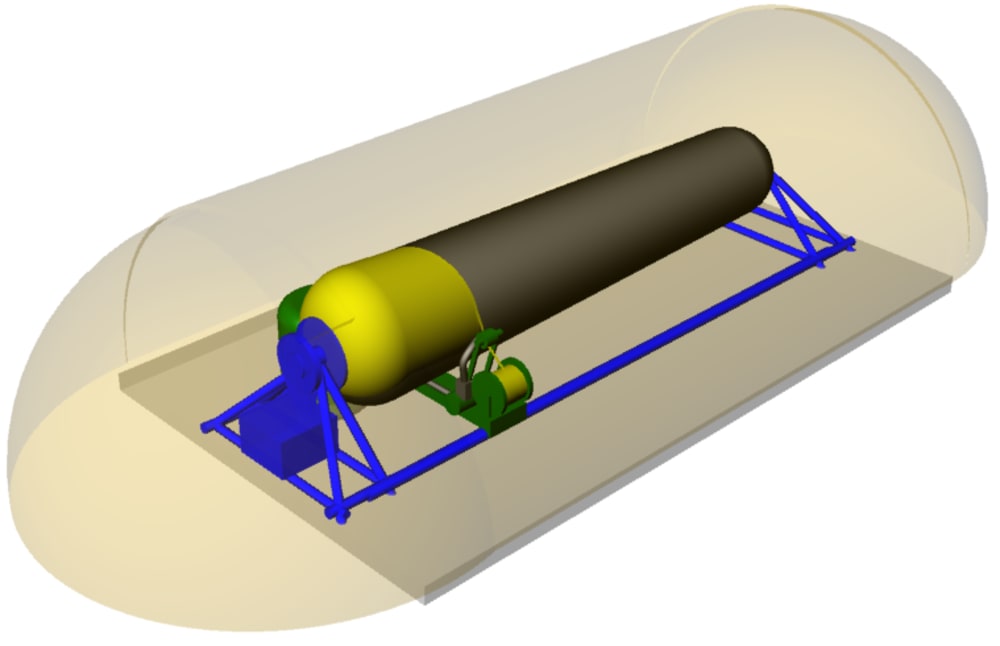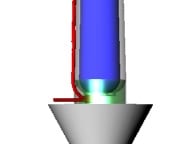In many areas of the world, the lack of readily available electrical energy, clean water, and employment opportunities are an interlocking problem that causes social strife, political conflicts, and limits the potential of millions of people. In a vicious circle, the lack of basic infrastructure limits the ability of an area to improve their economic condition, which impairs their ability to improve those supporting infrastructure systems.
This concept is an attempt to address all three of these issues with not just a product, but with an entire integrated production, fabrication, and deployment system that is highly scalable. Physically, this is a design for a commercial off the shelf (COTS) wind turbine of effective size and power, mounted upon a tapered cylindrical tower that is enclosed to form an elevated water tower. The water tower is connected to a ground water well by a COTS dual purpose water pump/generator. A basic electrical control system is used to run the system in one of three modes. 1) Wind turbine electrical generation. 2) Water gravity electrical generation. 3) Water pumping and storage. The output power can run to local demand or to battery storage to maintain water tower fill to provide pressure for output or reverse osmosis filtration flow, depending local needs and conditions.
None of these ideas are particularly novel individually. What are new about this system are both the method of construction for the tower and its means of production. Traditionally both wind turbine towers and water tanks are assembled from steel, concrete, or other conventional construction. Few places where wind turbines would be most effective have the industrial capacity to fabricate large steel assemblies, and the transportation of them from where they could be built and erected is prohibitively expensive or difficult
What is feasible is a system to transport a modular jig and lay-up equipment as well as the bulk resins and matrix fiber materials with which to fabricate the composite tower structure on site or closely adjacent. Either a preexisting building of sufficient size or a prefabricated temporary structure is used to house production. Local business partners or cooperative leaders are contracted and their staff are trained and employed to produce, install, and maintain the systems. The business can operate on the franchise or “turn-key” models, where local or international start-up capital is provided and then paid back. This provides jobs, income, and new skills to areas where there are usually few if any.
The Create the Future Design Contest prize would become the seed money for beginning the engineering, securing capital investment, and building links and agreements with the governments, non-governmental organizations, and local populations who would benefit from this system.
Many of today’s conflicts and untold human misery have their roots in the lack of access to energy, water, and economic opportunities. This application has the potential to redress all of these issues in a way that highlights the good that technology and empowering people can do in the world today and in to the future.
Like this entry?
-
About the Entrant
- Name:James Greeson
- Type of entry:individual
- Software used for this entry:Rhino 3D
- Patent status:none





